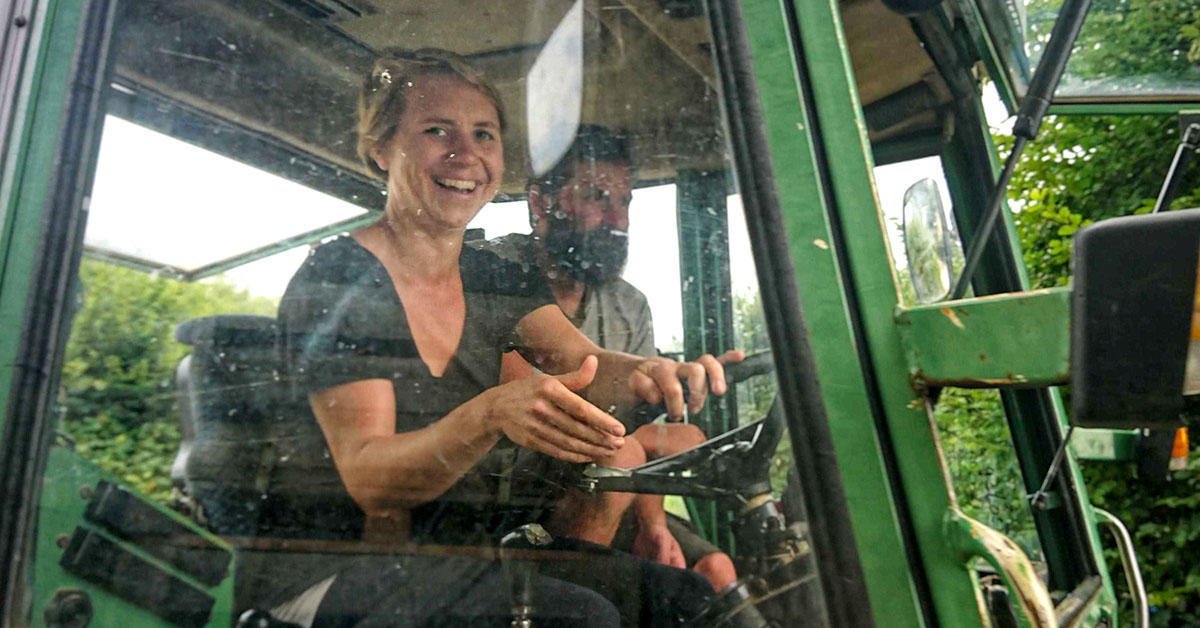Market gardeners, farmers of smaller sized farms or farmers practising agroecological, organic or regenerative agriculture are disadvantaged in the current agricultural digital innovation system. Large companies in the agriculture industry, often recipients of government investment, are currently the ones with the resources to digitize their equipment and benefit from the collection of farm data — leaving small-scale and alternative food producers out to pasture.
The high cost of the machinery and technology used to collect farming data and of the resources to operate these tools has led to an imbalance between small-scale farms and industrial food production and raised questions surrounding data ownership.
Diversity by Design
A 2021 research project led by uOttawa’s Kelly Bronson, Canada Research Chair in science and society, and Mascha Gugganig, Alex Trebek postdoctoral fellow in artificial intelligence and environment, set out to explore how emerging agri-industry technologies might benefit small-scale farmers, as well as what the technologies’ limits are, and why.
Funded by the University’s Alex Trebek Forum for Dialogue and the Social Sciences and Humanities Research Council (SSHRC), this three-year research project, Diversity by Design, is investigating what technical and policy adaptions are needed to implement these technologies with a level playing field. Insights will inform and bring more diversity to the agricultural food landscape.
Discovering inequities
Diversity by Design uses a participatory approach and qualitative research methods in the form of workshops, webinars, interviews and farm visits to offer farmers, technology developers, policymakers and researchers a space to engage with one another and with emerging technologies. The aim is to help the various groups better understand if, how and what type of digital technologies can best serve small-scale farmers.
Interviews and focus groups have so far uncovered what Bronson calls “a digital divide.”
“It’s an inequity in the way technology is designed,” she says. “Not everyone has access to, or the skills needed to, use this technology, which means they’re left out of technology that potentially drives decisions around food production.”
Bronson adds, “We’re seeing a mistrust around digital tools by small farmers because they associate it with corporate power.”
While industrial farming is a prominent part of the food system, small-scale farmers and growers with diverse farm environments are necessary. “They’re an asset for global food system sustainability as well as climate resilience. The global industrial food infrastructure produces over one third of the greenhouse gas emissions in Canada and this is similar globally.”
Jason Millar, who designed the workshops, emphasizes the importance of bringing together a diverse group of stakeholders and including their voices.
“Bringing their concerns, desires and interests to the conversation is crucial,” says Millar. “My focus is finding how to expose some of the ethical issues associated with existing technologies and reimagining how technologies can be better designed to mitigate those concerns.”
Bringing innovation to all farmers
The private sector and policymakers (for example, Agriculture and Agri-Food Canada) will be more directly involved in the final phase of the project, scaling. They will receive the results of the project workshops and recommendations on where regulations and investment in government-lead innovation could be focused.
The project team has also had discussions with Microsoft Canada. “They’re interested in bringing innovations to the marketplace and in helping us facilitate ideas with farmers and the private sector, where commercialization of these ideas could occur,” says Bronson.
Bronson believes that academia and the private and public sectors have a responsibility to design digital platforms and regulations that ensure small-scale farmers’ operational needs are met and their rights to privacy and protection of personal data are ensured. “Ultimately, it would be tragic to lose more Canadian farms. We cannot allow our small-scale farmers to be marginalized or excluded from technological changes,” says Bronson.
Dr. Kelly Bronson, University of Ottawa Canada Research Chair in science and society; and Dr. Mascha Gugganig, University of Ottawa Alex Trebek postdoctoral fellow in artificial intelligence and environment; along with Dr. Irena Knezevic, Carleton University; Sara Marquis, University of Ottawa; Dr. Jason Millar, University of Ottawa; and Dr. David Szanto, teacher and consultant; together form the Diversity of Design project research team.
